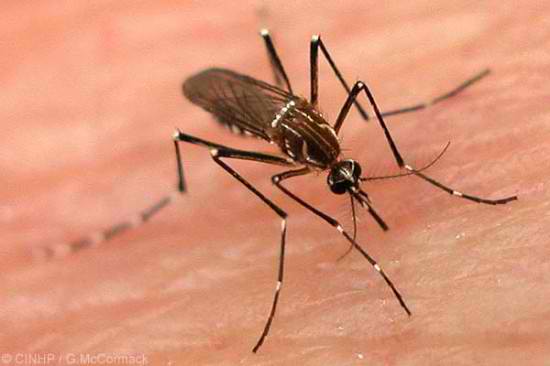
LONDON—The most advanced vaccine for dengue only offers modest protection but could still help millions of people avoid the devastating effects of the disease known as “breakbone fever,” according to a large trial.
There is no treatment for dengue, which causes symptoms including fever, severe joint pain, headaches and bleeding. About half the world’s population is at risk from the mosquito-borne disease, which sickens about 100 million people every year, mostly in Asia, Africa and Latin America.
Results from an early trial of the vaccine in 2012 found the vaccine’s efficacy was 33 per cent and that it failed to protect against one type of dengue; there are four distinct kinds and the vaccine is meant to fight all of them. In the latest study, conducted in more than 10,000 children aged 2 to 14 in Indonesia, Malaysia, Thailand, the Philippines and Vietnam, the shot’s efficacy improved to 56 per cent. Most common vaccines like those for measles and polio are more than 95 per cent effective.
“We all would have wanted a better efficacy rate but this is what we have to live with at the moment,” said Annelies Wilder-Smith of Nanyang Technological University in Singapore, who wrote a commentary for the study, published Friday in the journal Lancet. “Whether this vaccine’s efficacy is enough for countries to invest in is a question for economists.”
Researchers tracked the children in the new study, including those who got the fake shot, for about two years and noted side effects and other health problems following the vaccine. The study was paid for by Sanofi Pasteur, the vaccine’s maker.
Other experts said longer follow-up data on vaccinated children is needed to assess the shot’s safety. People infected with one type of dengue develop antibodies that protect them from further infections of that type. But if they catch another kind of dengue, their antibodies make them susceptible to more serious disease that could include hemorrhaging. Some scientists worry the antibodies from a dengue vaccine might have the same effect and say vaccinated children should be monitored for several years.
“We just don’t understand the antibody response in dengue well enough to know if this (problem) would also occur with a vaccine,” said Martin Hibberd, a professor of emerging infectious diseases at the London School of Hygiene and Tropical Medicine, who wasn’t part of the study.
He was also concerned the shot seemed to work by boosting pre-existing antibodies in people previously infected with dengue, since younger children didn’t get much protection from the shot. “It’s a bit scary that it looks like the vaccine only works in people who have already had dengue,” which would make the vaccine useless for Western tourists travelling to dengue-endemic countries, he said.
Officials at Sanofi Pasteur said they plan to apply for regulatory approval starting next year. The company said it was “too premature” to discuss the vaccine’s potential price.